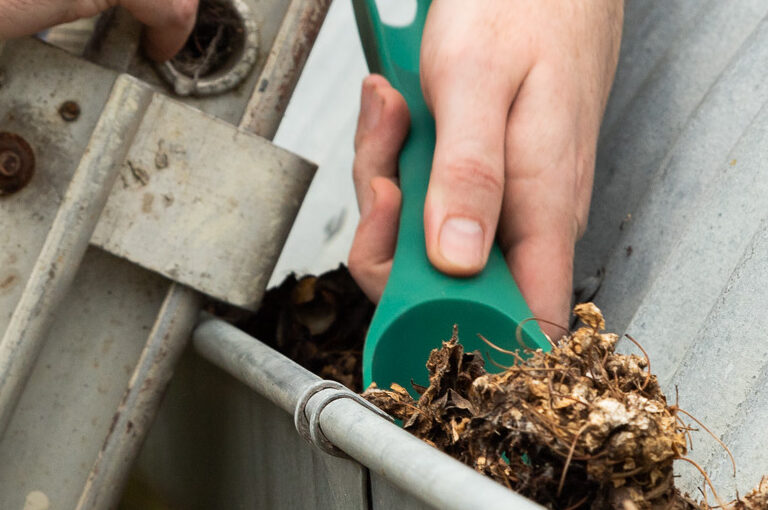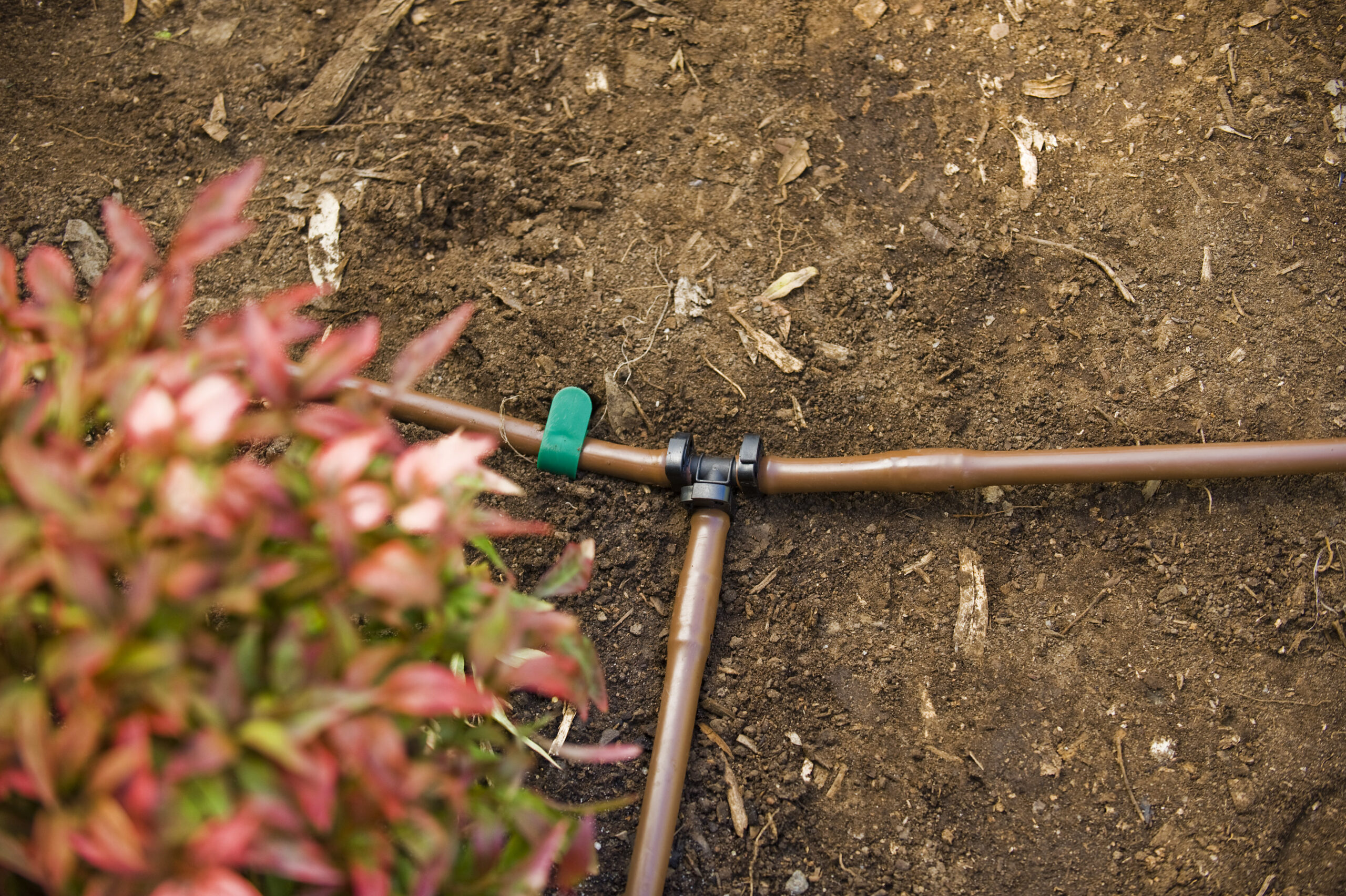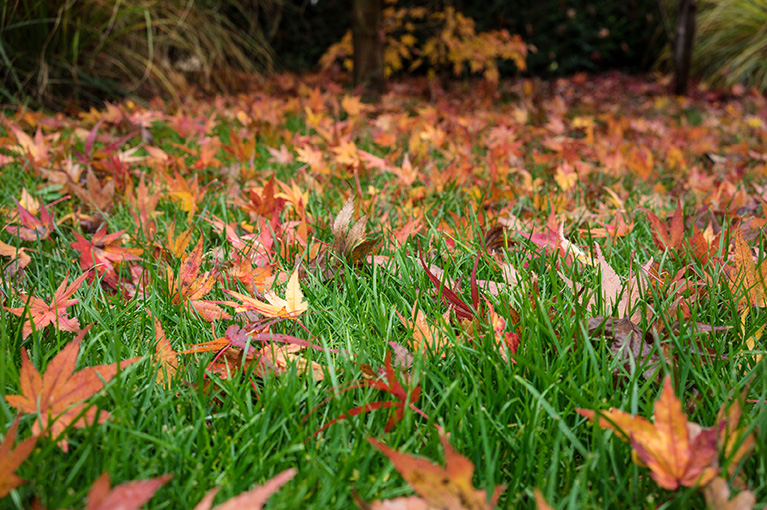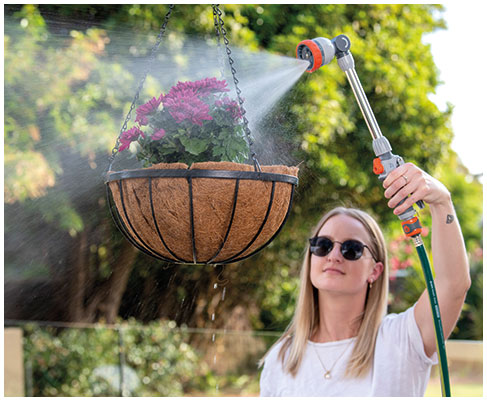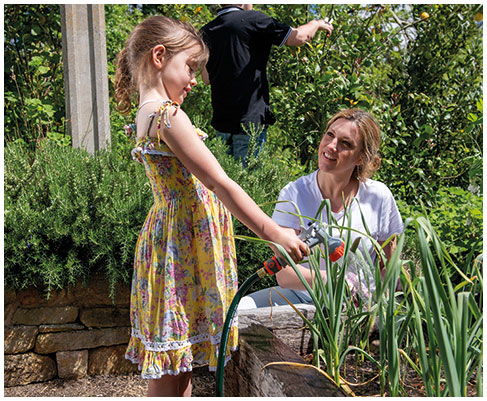Citrus are one of the best types of trees to have in your garden! In most regions of Australia they grow well in the ground. They also grow well in pots with regular deep watering and fertilising. They don’t like to be waterlogged so avoid placing the pot on a drainage tray. Citrus also don’t like salt air or heavy frost and they can be prone to suffer from disease or insect attack. So, how can you protect and care for your citrus plants to give them the best chance at bearing delicious fruit? Here are some easy care tips for your citrus:
How to prevent scale insects and other sap-suckers
No matter what types of citrus trees you’re growing, whether it’s lemon trees, mandarin, lime or orange trees, they can all be prone to scale insects that look like small black hard lumps which can easily be scraped them off with your fingernail. To protect your citrus plants from scale insects, mix 1 cup of olive oil, ½ cup of water and 3 drops of detergent and spray the undersides of the leaves. This smothers the bugs and they should die.
Mealybugs appear as fluffy white wax on stems or leaves. They feed on the plants’ sap and exude a sweet substance that attracts ants. For small trees they can be scraped off, washed off with a high pressure hose, dabbed with alcohol or sprayed with an insecticidal soap. For heavy infestations try Neem oil. This is an organic insecticide, fungicide and miticide that won’t affect bees or useful insects. Use every 7 – 14 days. If you can get the infestations to a low level then the natural predators will take care of the rest. Lady bugs are a good sign as they like to eat the pest bugs.
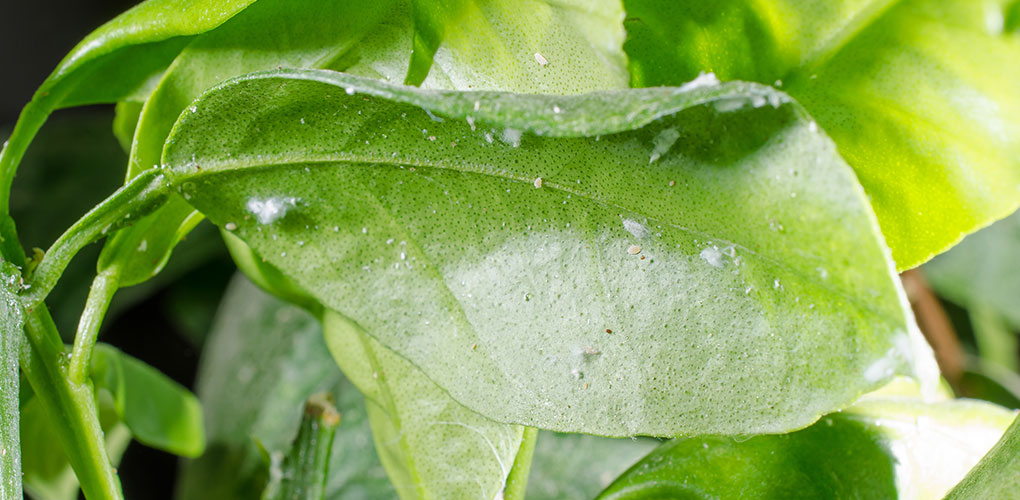 Mealybug damage
Mealybug damage
What causes leaf curl?
Leaf curl is usually the result of one or two causes, including over watering (or under watering) or pest attack. If the leaves are still green as they curl it’s likely to be an environmental issue (watering, deficiencies or wind damage). The leaf miner is a small moth that lays its eggs on the underside of citrus leaves. The larvae then mine tunnels along healthy young leaves, leaving silvery track marks. Pupation takes from 6 – 22 days so it can be a continual problem. They have natural predators so it is important not to use toxic sprays that will kill the good bugs, e.g. wasps and small spiders. Make a concentrate of 2 cups of olive oil and a ½ cup of detergent. Use 1 teaspoon per litre of water and spray all over the leaves in the cool of the day. The moth won’t lay its eggs on the oily leaves. It may need to be repeated every two weeks during summer, but it won’t hurt the tree.
 Leaf minor bug damage
Leaf minor bug damage
How to fix yellow leaves
This could be evidence of a nitrogen deficiency. Citrus need a lot of food so apply blood and bone or chicken manure and water-in well. Keep up regular feeding with high nitrogen fertilisers during the growing season (monthly). Add in some liquid seaweed to ensure all the trace elements are available.
Pale blotchy leaves
This is due to a magnesium or zinc deficiency and can be fixed by spraying with a mix of 1 tablespoon of Epsom salts in a bucket of water. Spray foliage and soil.
How to prune and shape like a pro
Citrus plants need regular light pruning to remove dead wood and to keep a good shape with plenty of ventilation through the branches. Aim to do most of your pruning in Spring to allow all the growing energy to go into the fruit. For more information visit our article on how to prune fruit trees.

Pope's DIY Tip
Autumn is the perfect time to safeguard your Citrus plants against any nasty bugs and diseases. We hope our homemade garden tips and spray recipes will come in handy and keep bugs at bay! Take time to nourish your soil with fertiliser and mulch too, this will give your citrus plants a healthy start to winter.
No matter what types of citrus trees you’re growing, whether it’s lemon trees, mandarin, lime or orange trees, they can all be prone to scale insects that look like small black hard lumps which can easily be scraped them off with your fingernail. To protect your citrus plants from scale insects, mix 1 cup of olive oil, ½ cup of water and 3 drops of detergent and spray the undersides of the leaves. This smothers the bugs and they should die.
Mealybugs appear as fluffy white wax on stems or leaves. They feed on the plants’ sap and exude a sweet substance that attracts ants. For small trees they can be scraped off, washed off with a high pressure hose, dabbed with alcohol or sprayed with an insecticidal soap. For heavy infestations try Neem oil. This is an organic insecticide, fungicide and miticide that won’t affect bees or useful insects. Use every 7 – 14 days. If you can get the infestations to a low level then the natural predators will take care of the rest. Lady bugs are a good sign as they like to eat the pest bugs.

Leaf curl is usually the result of one or two causes, including over watering (or under watering) or pest attack. If the leaves are still green as they curl it’s likely to be an environmental issue (watering, deficiencies or wind damage). The leaf miner is a small moth that lays its eggs on the underside of citrus leaves. The larvae then mine tunnels along healthy young leaves, leaving silvery track marks. Pupation takes from 6 – 22 days so it can be a continual problem. They have natural predators so it is important not to use toxic sprays that will kill the good bugs, e.g. wasps and small spiders. Make a concentrate of 2 cups of olive oil and a ½ cup of detergent. Use 1 teaspoon per litre of water and spray all over the leaves in the cool of the day. The moth won’t lay its eggs on the oily leaves. It may need to be repeated every two weeks during summer, but it won’t hurt the tree.

How to fix yellow leaves
This could be evidence of a nitrogen deficiency. Citrus need a lot of food so apply blood and bone or chicken manure and water-in well. Keep up regular feeding with high nitrogen fertilisers during the growing season (monthly). Add in some liquid seaweed to ensure all the trace elements are available.
Pale blotchy leaves
This is due to a magnesium or zinc deficiency and can be fixed by spraying with a mix of 1 tablespoon of Epsom salts in a bucket of water. Spray foliage and soil.
How to prune and shape like a pro
Citrus plants need regular light pruning to remove dead wood and to keep a good shape with plenty of ventilation through the branches. Aim to do most of your pruning in Spring to allow all the growing energy to go into the fruit. For more information visit our article on how to prune fruit trees.

Pope's DIY Tip
Autumn is the perfect time to safeguard your Citrus plants against any nasty bugs and diseases. We hope our homemade garden tips and spray recipes will come in handy and keep bugs at bay! Take time to nourish your soil with fertiliser and mulch too, this will give your citrus plants a healthy start to winter.
This could be evidence of a nitrogen deficiency. Citrus need a lot of food so apply blood and bone or chicken manure and water-in well. Keep up regular feeding with high nitrogen fertilisers during the growing season (monthly). Add in some liquid seaweed to ensure all the trace elements are available.
This is due to a magnesium or zinc deficiency and can be fixed by spraying with a mix of 1 tablespoon of Epsom salts in a bucket of water. Spray foliage and soil.
How to prune and shape like a pro
Citrus plants need regular light pruning to remove dead wood and to keep a good shape with plenty of ventilation through the branches. Aim to do most of your pruning in Spring to allow all the growing energy to go into the fruit. For more information visit our article on how to prune fruit trees.

Pope's DIY Tip
Autumn is the perfect time to safeguard your Citrus plants against any nasty bugs and diseases. We hope our homemade garden tips and spray recipes will come in handy and keep bugs at bay! Take time to nourish your soil with fertiliser and mulch too, this will give your citrus plants a healthy start to winter.
Citrus plants need regular light pruning to remove dead wood and to keep a good shape with plenty of ventilation through the branches. Aim to do most of your pruning in Spring to allow all the growing energy to go into the fruit. For more information visit our article on how to prune fruit trees.

Pope's DIY Tip
Autumn is the perfect time to safeguard your Citrus plants against any nasty bugs and diseases. We hope our homemade garden tips and spray recipes will come in handy and keep bugs at bay! Take time to nourish your soil with fertiliser and mulch too, this will give your citrus plants a healthy start to winter.








